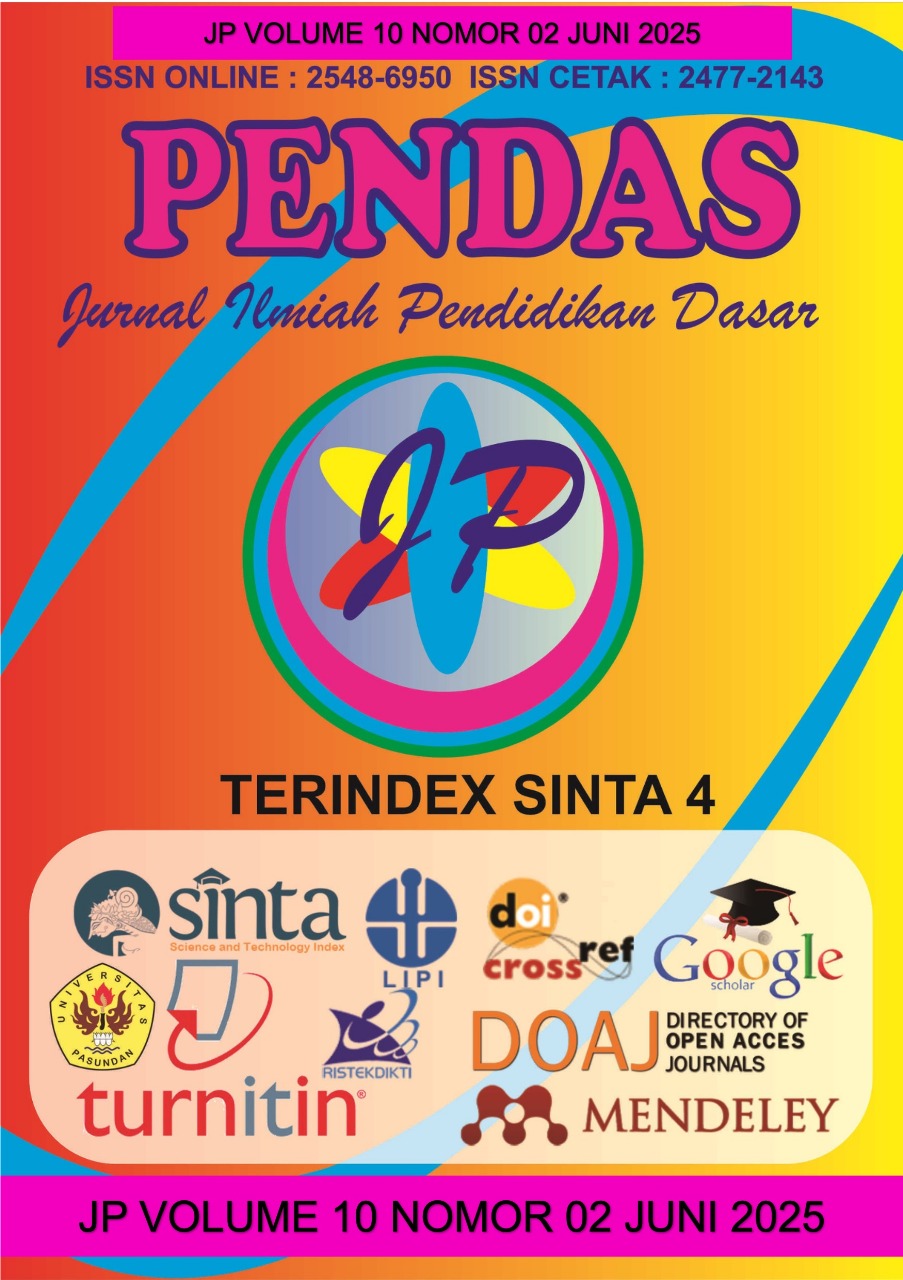PENERAPAN MODEL PROBLEM BASED LEARNING (PBL) UNTUK MENINGKATKAN HASIL BELAJAR SISWA KONSEP “SUMBER ENERGI DI SEKITAR KITA” KELAS III SD NEGERI ASEMBAKOR I
DOI:
https://doi.org/10.23969/jp.v10i2.24617Keywords:
learning outcomes, IPAS, problem based learningAbstract
The reality in the field shows that science teachers still use the Teacher Centered Learning (TCL) model. Teachers still dominate the learning process so that some students still look passive and are less brave in expressing ideas. The purpose of this study is to improve student learning outcomes on the concept of energy sources around us in class III of Asembakor I Elementary School using the PBL (Problem Based Learning) learning model. This study uses the Classroom Action Research (CAR) method, there are 4 stages of activities in one round (cycle), namely planning, implementation stage, observation stage, and reflection stage. This study has 2 cycles. The third grade students of Asembakor I Elementary School who were the subjects of this study numbered 7 people. The results of this study showed a significant increase in student learning outcomes. Based on the pre-test results, the number of students who did not complete was 6 students (85.71%) and those who completed were 1 student (14.28%). In cycle I there was an increase, namely there were 2 students who completed (28.57%) while those who had not completed were 5 students (71.42%). Then, in cycle II there was an increase, namely there were 6 students who completed (85.71%) while those who had not completed were 1 student (14.28%). Based on these results, it shows that the PBL (Problem Based Learning) learning model can improve student learning outcomes.
Downloads
References
Alqoria, F. (2023). Application of the Contextual Learning Approach in the Independent Curriculum for Science in Grade IV at SDN 37 Lebong Rejang [Skripsi]. 1–133.
Anjarwati, A., Setyawati, I., Wijaya, N. A., Sholeha, R., & Putri, S. D. M. (2022). Increasing the Knowledge of Students by Teaching Wujud Benda in IPA Classes. Jurnal Pendidikan, Sains Dan Teknologi, 1(1), 60–66. https://doi.org/10.47233/jpst.v1i2.276
Bernadetta Purba dkk, P. (2021). Penelitian Tindakan Kelas. In Penelitian Tindakan Kelas.
Cookson, M. D., & Stirk, P. M. R. (2019). Penelitian Tindakan Kelas. 50–79.
Dhuha, M. F. (2023). Using the Problem Based Learning (PBL) Model to Enhance Social Studies Learning Outcomes for Class IV MI Islamiyah Sumberrejo Batanghari Students During the Academic Year 2017/2018. Universitas Islam Negeri Maulana Malik Ibrahim, 1–100.
Dkk, C. W. (2013). Penelitian Tindakan Kelas.
Dwi Agustin, Ribut Prastiwi Sriwijayanti, & Ryzca Siti Qomariyah. (2023). The Impact of Smart Snakes and Ladders Media (Utar) on the Academic Performance of Grade V Social Studies Students at Dringu Elementary School on the Cultural Diversity Theme in the 2022–2023 School Year. PARAMETER: Jurnal Pendidikan Universitas Negeri Jakarta, 35(1), 26–38. https://doi.org/10.21009/parameter.351.03
Effendi, R., & Reinita, R. (2020). Enhancing Learning Outcomes in Grade IV Elementary School Integrated Thematic Learning using the Cooperative Script Model. Jurnal Pendidikan Tambusai, 4(3), 1814–1819. https://doi.org/10.31004/jptam.v4i3.640
Eni. (2019). The idea behind the problem-based learning model. International Edition of Angewandte Chemie, 6(11), 951–952., Mi, 5–24.
Erliska Sitiana. (2020).
Fatah, R. P., Kisai, A. A., & Labudasari, E. (2023). Enhancing Science Learning Outcomes for Grade IV Students at SDN 1 Cirendang, Kuningan District, Kuningan Regency, through the Problem Based Learning (PBL) Learning Model. El-Muhbib: Journal of Research & Thought in Education, 7(1), 29–40. https://jurnalilmiahcitrabakti.ac.id/jil/index.php/jil/article/view/101/117.
Downloads
Published
Issue
Section
License
Copyright (c) 2025 Pendas : Jurnal Ilmiah Pendidikan Dasar

This work is licensed under a Creative Commons Attribution 4.0 International License.














































